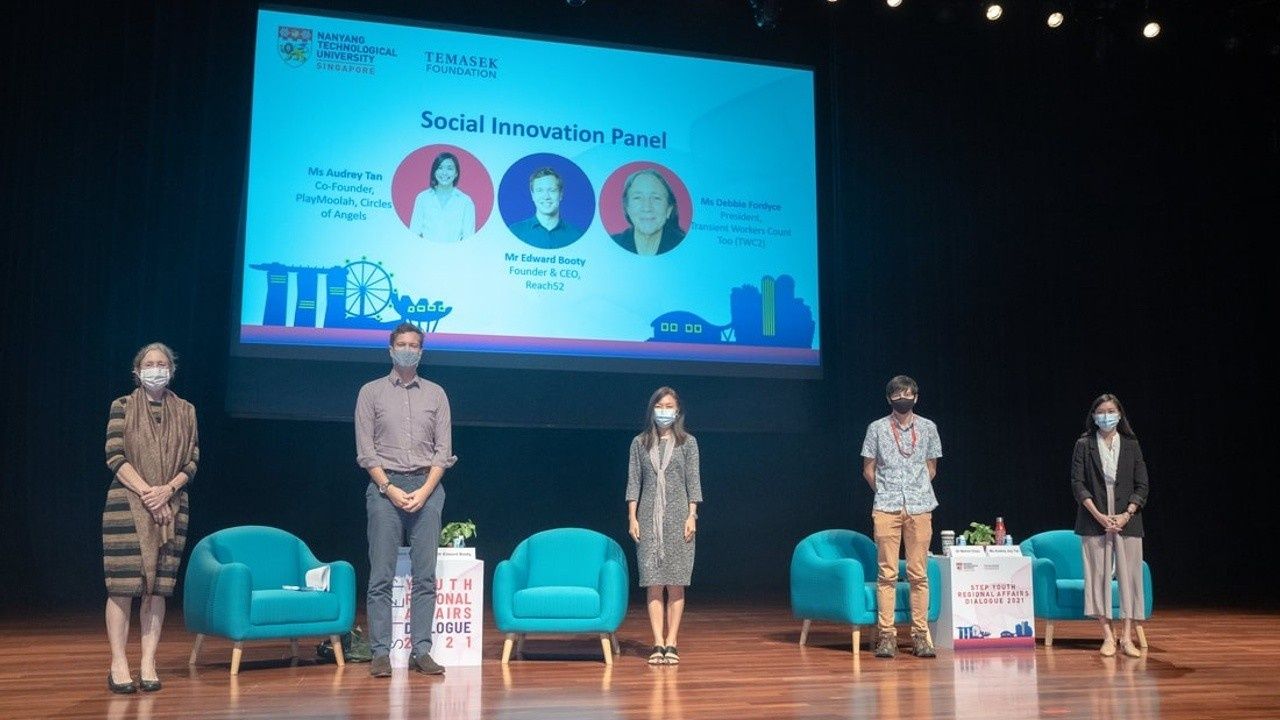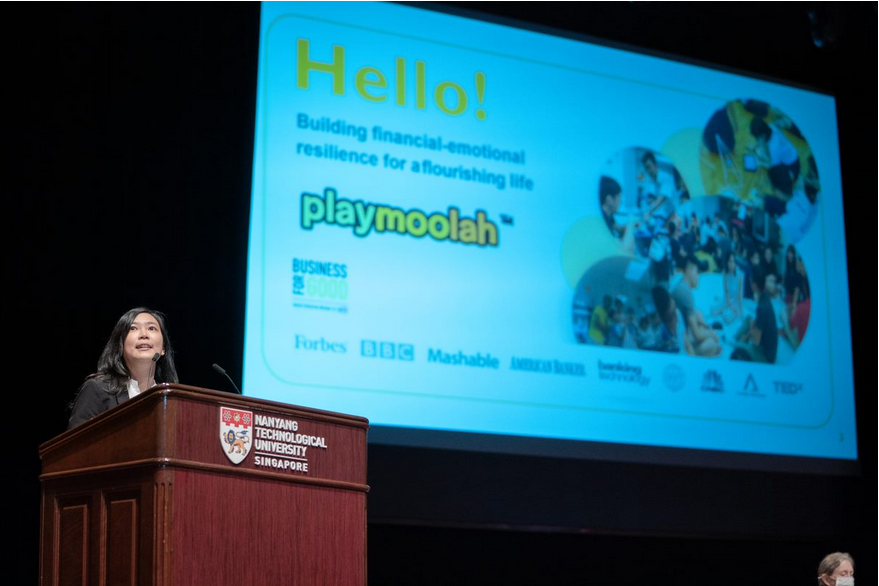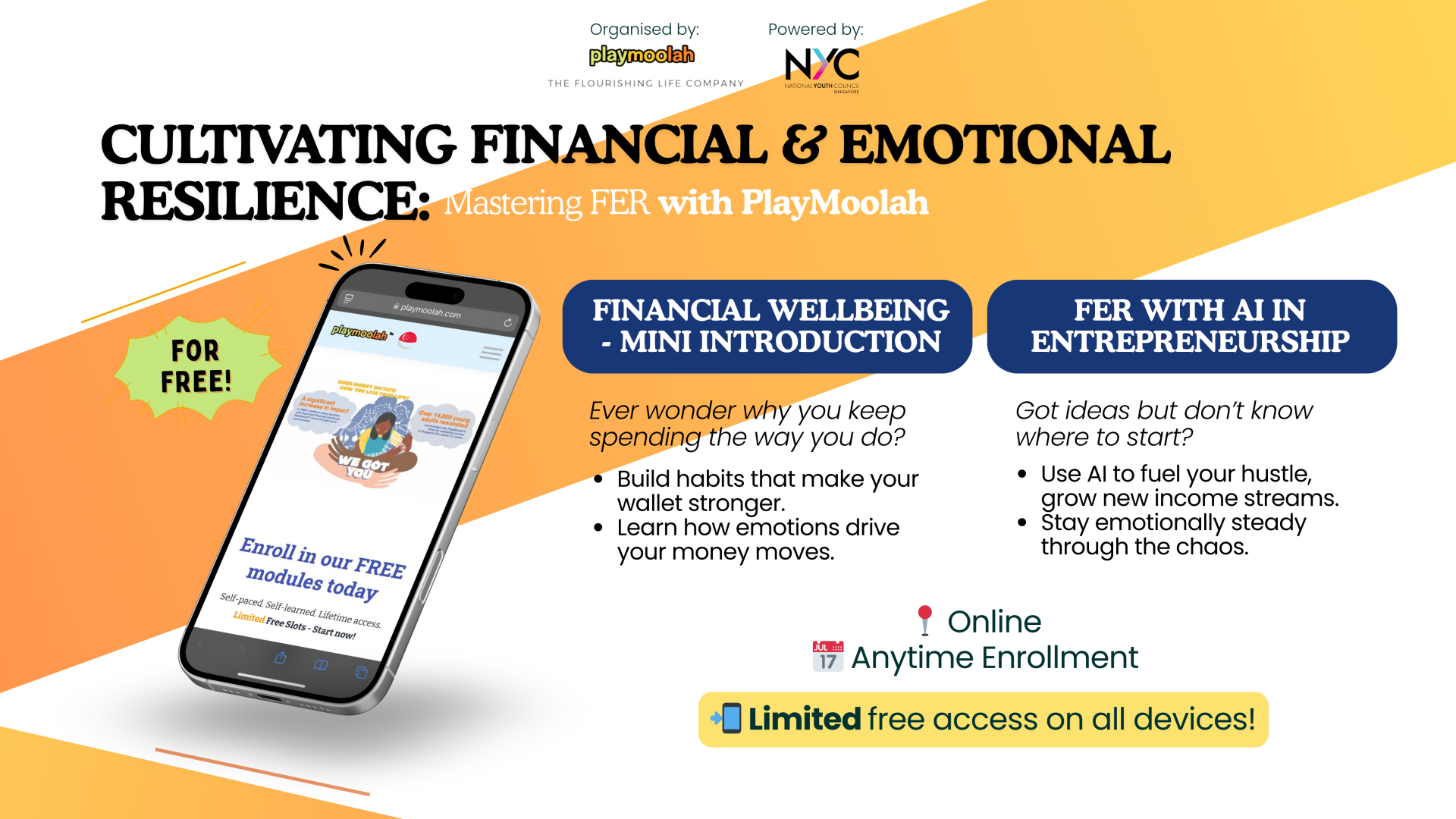Recently, I got the opportunity to attend The STEP Youth Regional Affairs Dialogue 2021 which was organised by Nanyang Technological University. The purpose of it was to serve as a platform for university students in Asia to strengthen their leadership skills and deepen their understanding of geopolitics. It was held from 3rd to 9th of January 2021 at the NTU campus.
I got to learn more about what the other companies were doing and I found it really interesting as I felt that we were all serving a shared purpose for the common good - to help the community in various ways. It has helped me broaden my perspective on our society, especially when Ms Debbie Fordyce spoke about how she believes that transient workers deserve respect for their contributions and sufficient income to support themselves and their family. It struck me that there are people who come from less privileged backgrounds who get treated differently just because of what they do. I feel that this is a result of a strong stigma that transient workers are seen as people who are “lower’, which is unfair because they are also human, and everyone deserves to be treated equally. It has also come to my realisation that our society can be a bit toxic sometimes, as we tend to classify people and treat them based on what we think of them to be. Transient workers are just one of the examples.

From left to right: Ms Debbie Fordyce, Mr Edward Booty, Professor May O. Lwin , Dr Melvin Chen, Ms Audrey Tan
Another common example would be regarding stereotyping educational institutions in Singapore, such as people who go to Junior College are smart and people who go to ITE are not as academically gifted. In my opinion, it puts a label on us and makes us feel like we are only able to study at certain educational institutions only if we are smart enough. It really limits us and we start to have this fixed mindset and I feel like that’s what causes most youth to have poor or lack of self-esteem. As a result, it affects our performance and mental health.
Statistics have also shown that “More than half (53 per cent) of Singaporeans cited money as the top source of stress, and this concern is particularly key among millennials (63 per cent).” Thus, not only do young people struggle with mental health issues, money is one of the root causes of their problems as it affects them in their day to day lives. On top of that, the number of youths struggling with mental health issues are on the rise and it is something that needs attention. In addition, Audrey shared that the pandemic has escalated the challenges around money anxieties, affecting our mental health and we can respond in positive ways to begin these uncomfortable conversations in a productive way.
As youths, we struggle to talk about our mental health issues as it is a very sensitive topic. Some of us might want help, but are not sure how we should seek help or fear being judged if we do. On the other hand, some may feel that they do not require help as it is pointless.

Audrey’s sharing about PlayMoolah and the work we do.
Money at times helps us cope as it allows us to buy materialistic items to make us feel better. As a youth myself, there have been times where I find myself spending money unnecessarily on clothes or food. However, it is only a short term solution to make me feel better. Thus, the longer we do not address the internal issues we are facing, the harder it will be to face it, especially for youths. It is important that we help our youths and instil financial-emotional resilience in them so that they will be able to live a flourishing life. Therefore, as youths will be the leaders of our future generation, we should do something for one another.
After reflecting on my experience, I could see the bigger picture. At PlayMoolah, our aim is to create a positive impact by strengthening financial-emotional resilience to improve the quality of our lives.
For example, we are running a program called “
Honesty Circles”, the aim of which is to help participants have an honest conversation about money in a deep and vulnerable way. It is also beneficial for participants as it helps them uncover hidden, negative and limiting beliefs around themselves and money. At the end of the programme, they will be able to develop healthier money narratives.
All in all, I am very grateful to be given this opportunity to attend the STEP Youth Regional Affairs Dialogue 2021. It has inspired and motivated me to do what I’m currently doing at PlayMoolah as I feel like it’s for a greater purpose.



